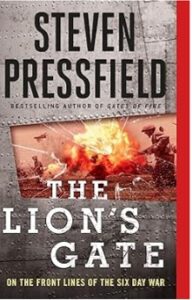
Of all my Six Day War books, and my database says I have 34, the one that gets me closest to Israelis in 1967 is Steven Pressfield’s The Lion’s Gate. He promises in his intro to get you “in the cockpit, inside the tank, under the helmet,” and he really does. But why this book’s so moving is that it’s told not in Pressfield’s but in IDF combatants’ and civilians’ own words. The book follows just a few selected folks from the long wait through the ceasefire and beyond, but if you want to know what the unanticipated liberation of Jerusalem’s Old City, Temple Mount, Western Wall, City of David and all, and Judea-Samaria meant to Israelis of Six Day War days, here it is.
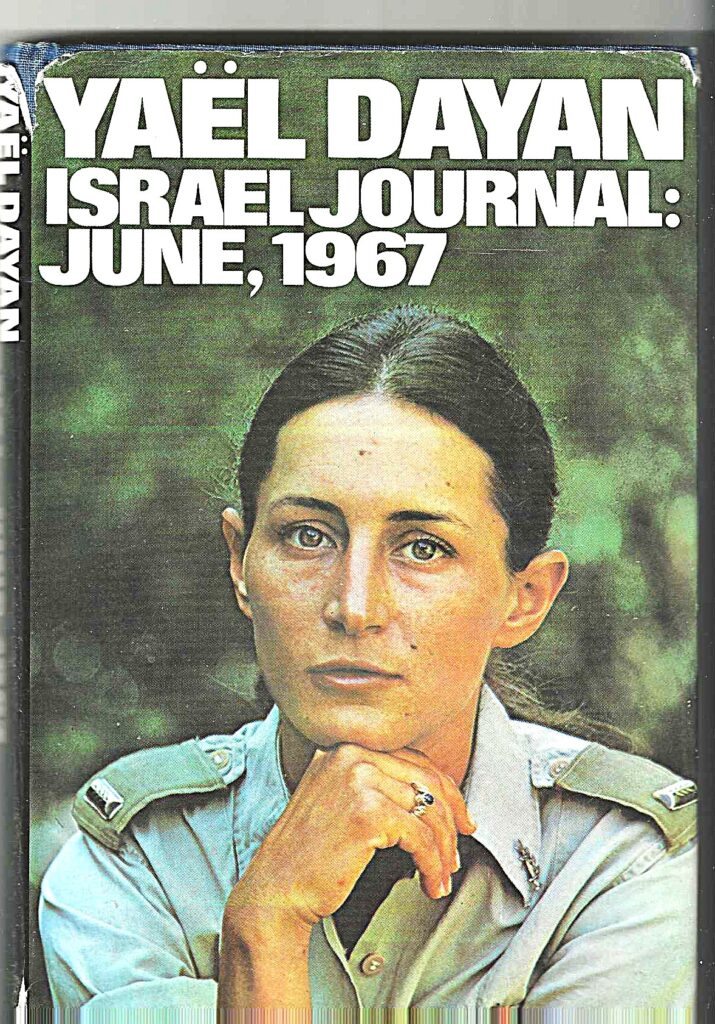
Ok, she wasn’t as famous as her father, but accomplished author Lt. Yael Dayan was assigned as official correspondent to the Negev front ugda of Gen. Ariel Sharon during the nerve-racking weeks of waiting just preceding the Six Day War, and she saw it through with his advance HQ through its end and beyond. Well-written and gives you real sense of what went on there throughout.
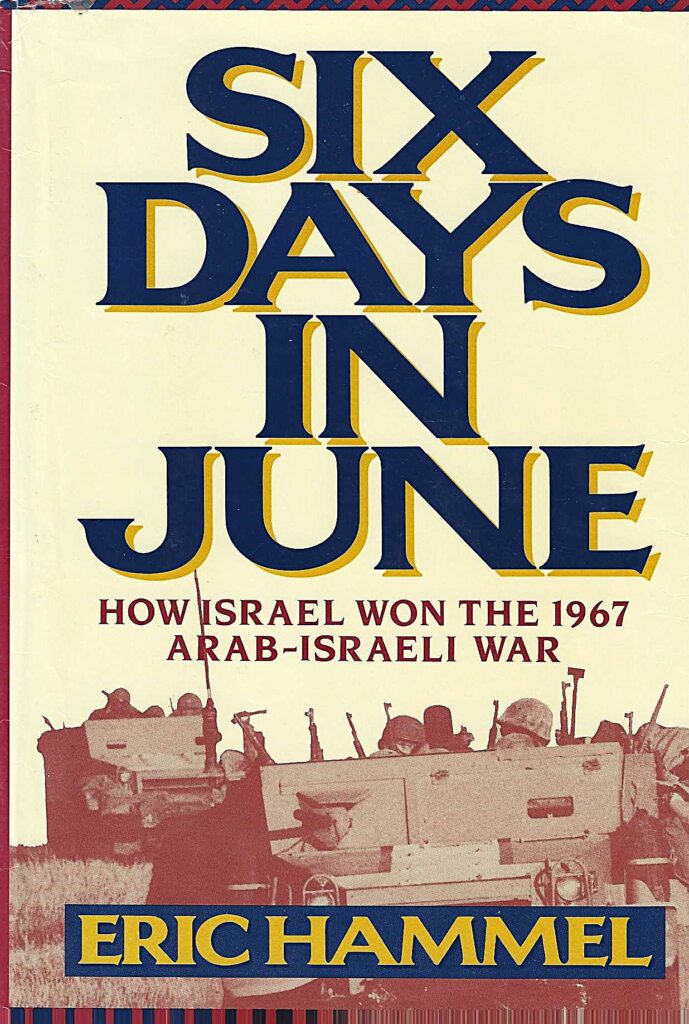
Ok, I was a nervous wreck in those two last two weeks of May, 1967, with Israel surrounded by armies of destruction-howling foes, the UN kicked out, the Red Sea port of Eilat blockaded, and all, but Eric Hammel not just quotes Israelis as not sharing my fears, but delves deep into why. This moving account by a military historian well covers the war and on all fronts and the IDF’s long buildup for it.
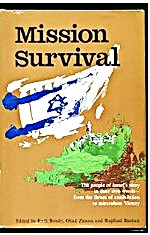
I like history books that capture the mood of their time by compiling first-person accounts of people who were not just there but involved. Such a work, and well-done at that, is Mission Survival. Chapters “The Gathering Storm … A People Goes to War … The Fifth of June … The Sky is Not the Limit … Battle in the Desert … Jerusalem Forever … To the Jordan … The Threatening Heights … The Seventh Day … Summing Up … The Aftermath,” all packed with then-and-there interviews and newspaper accounts capture this incredible Jewish history moment.
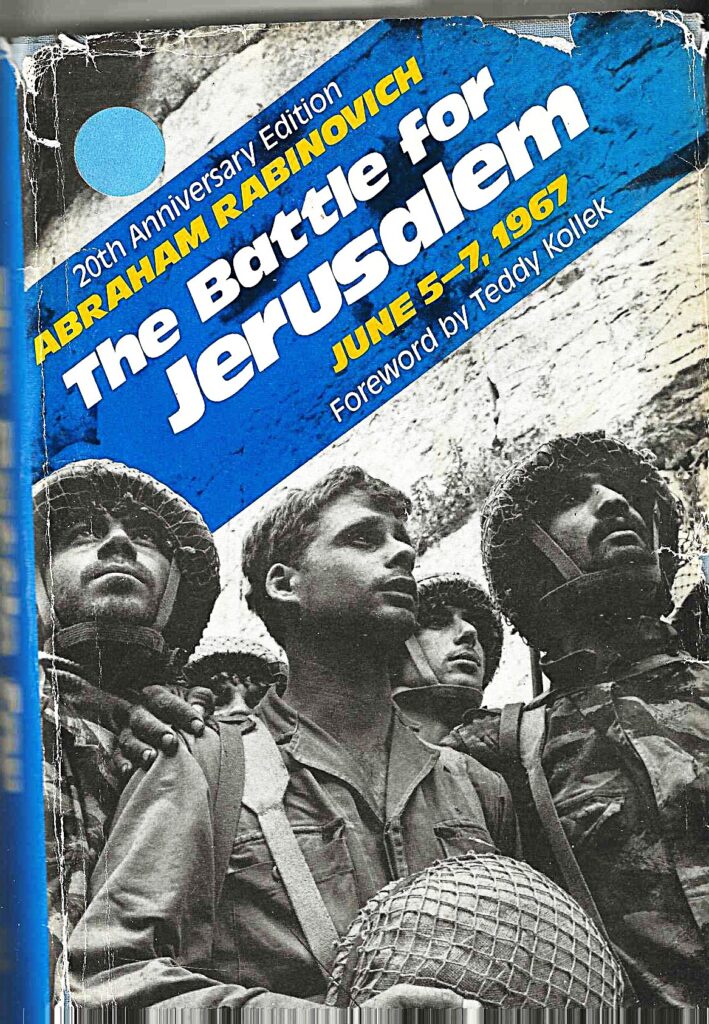
Abraham Rabinovich is among by favorite Israel-subject authors. He was there, as a war-covering journalist, when the battle for Jerusalem broke out, and as mayor Teddy Kollek wrote in his Foreword to the 20th anniversary edition, reporter Rabinovich, who found himself inside City Hall during the shelling, brings back events of those heroic days “as vividly as if they were just taking place.”
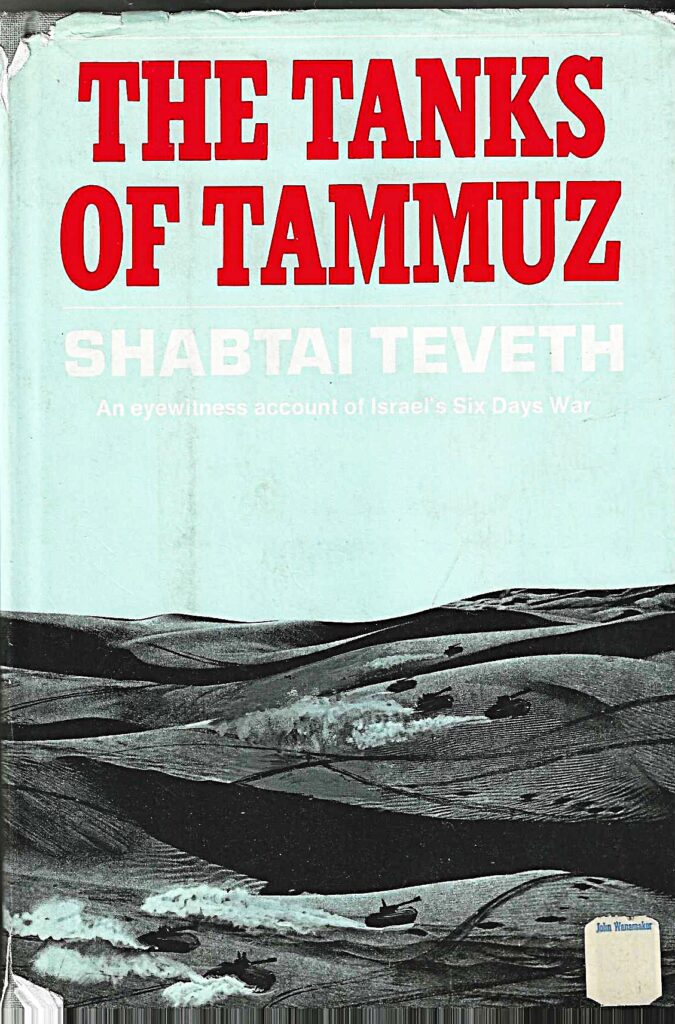
This moving account of the major role of Israel’s Armored Corps in the Six Day War focuses on the men in the tanks and on the growth, not free of deep differences in high command over tanks’ role, through the years leading up to it. Gen. Dayan called this book “written with love, pain and profound insight” into both what molded this fighting force and “the heroic story of a beleaguered people fighting literally for survival.”
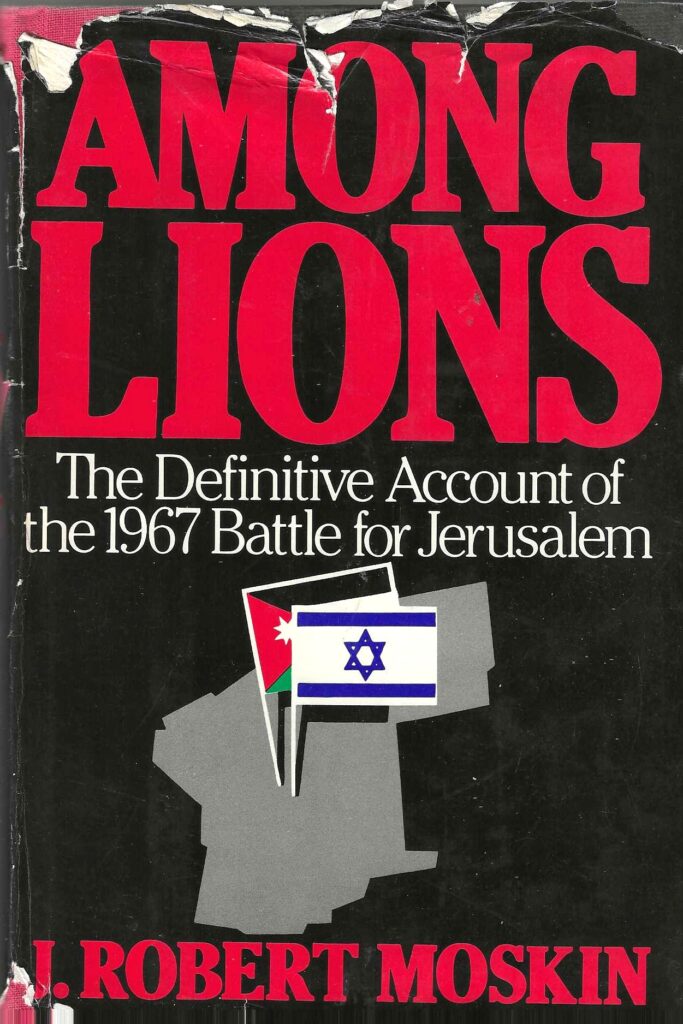
This book, subtitled “The Definitive Account of the 1967 Battle for Jerusalem,” is, as its jacket rightly claims, a “riveting account” that “relives hour by hour the ferocious battle, which spilled into the very streets of the historic and divided city,” replete with battle accounts and “personal stories of mothers, teachers, doctors and innocent bystanders.”
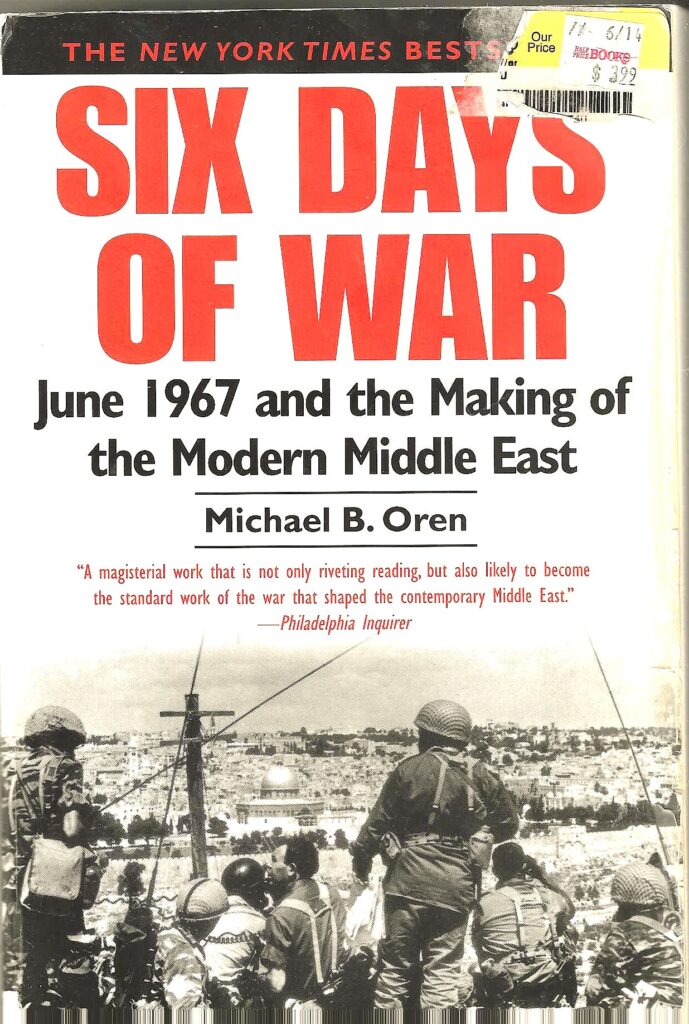
Oren’s is a quite readable comprehensive account of what led up to the Six Day War, of the fighting day-by-day, and of the consequences of that war for the future of the Mideast. If you’re seeking a soldier-and-ambassador assessment of the Six Day War in context, here’s one authoritative place to find it.
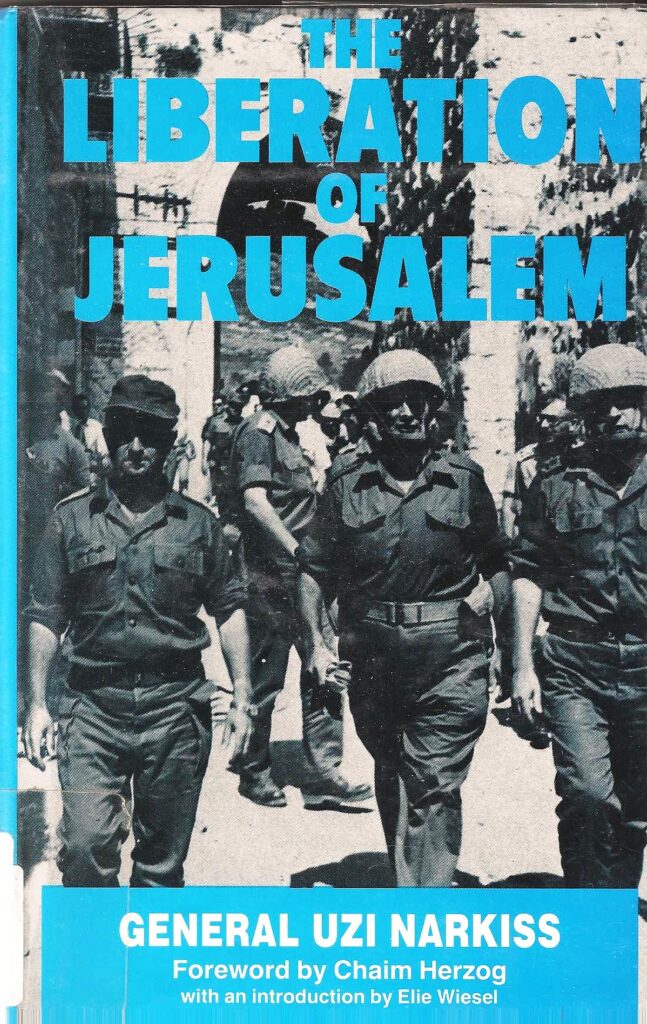
General Uzi Narkiss, who fought as an officer in Jerusalem in 1948 and had been forced to retreat, was commander of Israel’s Central Front in 1967 and was told by Minister of Defense Dayan to hold out without reinforcement should Jordan unexpectedly attack while the IDF was fully engaged in fighting Egypt. But Jordan did attack, taking UN headquarters on (how appropriate) The Hill of Evil Counsel, and Narkiss successfully counterattacked with the Jerusalem Brigade. Jordan, under Egyptian command, opened hostilities elsewhere, and, fortified with Mordechai Gur’s paratroop brigade, released from a no-longer-essential planned drop at El Arish, and Harel Brigade of mostly obsolete Sherman tanks, Central Front fought ferocious battles at Radar Hill, Ammunition Hill and elsewhere, culminating in liberating Jerusalem’s Old City. Narkiss movingly recounts this earth-shaking Jewish history event hour-by-hour in this book. In his moving Introduction, Elie Wiesel concluded: “I envy my friend Uzi Narkiss. I envy him his memories.”

